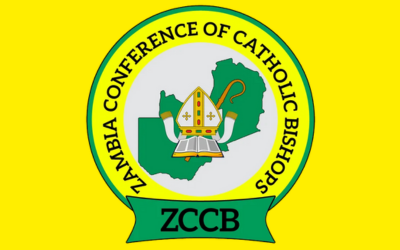Lusaka (Agenzia Fides) – “We are deeply concerned about pollution and environmental degradation, which cause suffering to vulnerable populations due to the predominance of political and economic interests that do not place human dignity and the common good at the center of national development,” write the Bishops of Zambia in a joint statement on pollution and environmental degradation”.
The statement was issued on August 22, shortly the World Day of Prayer for Creation, which is celebrated today, September 1. The bishops criticize “the negligence, particularly evident in the lack of monitoring of the application of environmental regulations,” calling this “a moral failure that directly contradicts our Christian duty to be stewards of God’s creation and to care for our fellow human beings, especially the most vulnerable.”
Zambia is rich in natural resources, from copper (where it is the seventh-largest producer in the world) and cobalt, as well as gold, silver, zinc, emeralds, and other precious stones. In addition, deposits of other minerals essential to the so-called energy transition, such as lithium, manganese, nickel, and uranium, have been discovered, but are not yet being mined.
Mining, meanwhile, causes severe environmental damage. The government in Lusaka therefore launched an investigation into river pollution in the Copperbelt region (where copper and cobalt are mined) earlier this year, following repeated incidents of contamination. The bishops recall that “in 2021, the Konkola Copper Mines (KCM) company settled a long-standing environmental pollution dispute with communities near the mining facility after toxic waste from the Nchabga mine contaminated rivers and destroyed agricultural land.” KCM’s activities have also caused severe environmental damage to the Mushishima River and other areas of the Copperbelt.
“These environmental violations have caused immediate and long-term health damage, destroyed ecosystems, and wiped out the livelihoods of those who rely on agriculture and fishing,” the bishops explain, adding that the national environmental agency (Zambia Environmental Management Agency, ZEMA) “must also be held accountable.”
But it is not only large mines with foreign interests that cause environmental damage. “The discovery of gold veins in various regions of the country has sparked a gold rush,” the statement reads. “In search of earning a living in a precarious economic situation, ordinary citizens, especially young people, embark on a search for fortune at their own risk,” the bishops explain. “Without adequate controls, these gold miners risk being buried by collapses in their makeshift mines and poisoned by mercury (used to extract gold from rock), not to mention the health risks of the local population.” The problem of artisanal gold mining also affects other African countries, such as Ghana (where the phenomenon is known as “galamsey,” see Fides 16/11/2022 and 8/5/2024).
The bishops conclude by calling on the government to tighten regulations, hold mining companies accountable for restoring degraded ecosystems, and create safe and regulated opportunities for citizens, especially young people, to benefit from the country’s natural wealth. (Source: Agenzia Fides, 1/9/2025)


